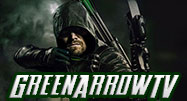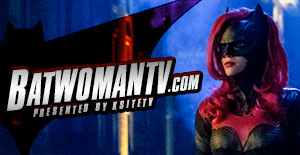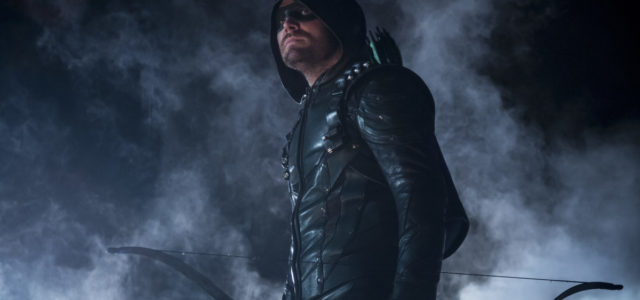
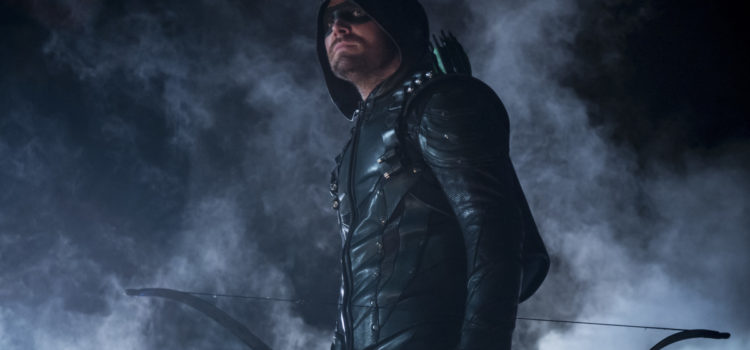
Team GATV Roundtable: Looking Back At Arrow Season 6 & Forward To Season 7
Opinion July 20, 2018 Craig Byrne

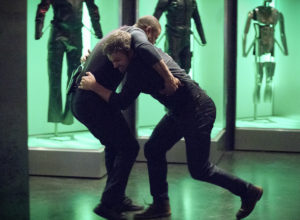 Did the “fractured team” story work for you?
Did the “fractured team” story work for you?
MELISSA: I feel the “fractured team” story could have worked, but the reasons that came with each of the three fractures (NTA, Diggle, and then finally Oliver dismissing Overwatch) lacked logic or were simply not properly set up.
Oliver spent most of season six making calm, rational, and fair choices under the hood. Then he decided the only way he could stop Diaz was facing him alone. (A choice made more absurd since it came after Felicity had just rescued him from Diaz’s trap.) At first, his choice came with no explanation and later he babbled about the need to compartmentalizing home and work which goes against everything Oliver had been learning since day one. Concluding he must work without Felicity was just another in the season-long list of contrivances.
Mind boggling as that was, it was a brief thing born out of Oliver’s newly stoked fears but NTA’s frustrating and petty split went on for an excruciatingly long time.
First, NTA took a month off and sulked while newlyweds and a fulltime father – one that hadn’t left his kid dumped in the foster system for more than a year without even trying to see her – exhausted themselves trying to save the city on their own. They failed not because of leadership or even because they had been bugged the whole time, but because their opponent could overwhelm their numbers. And when the OTA was willing for the sake of the city to start fresh, the NTA churlishly rebuffed an (underserved) apology and refused to work with them. Instead, they formed their own team as a spiteful and incredibly naïve attempt to show up the OTA.
Diggle quitting was nearly as frustrating and no matter how wholeheartedly David Ramsey and Stephen Amell sold the heartache their characters felt as the split happened during “Brothers in Arms,” why it happened remains one of the biggest “What the hell?” moments of the season.
The strings designed to ensure Oliver ended without a team by the end of the season were painfully obvious. The frustrating part was they could have built up to similar moments without forcing characters to act out of character. Diggle could have left to explore what he could offer as a leader, something that was never going to happen while he remained Oliver’s second in command. Felicity could have been splitting her focus between home and the startup so that Oliver felt like he was on his own. The NTA could have left to form a different kind of team without it being first about sending Oliver a walking F U.
That’s the difference between Diggle’s departure and the NTA’s split. Once Diggle left, the squabbling about why he left stopped. His maturity and continued loyalty to his friends came in clear contrast to the petty, childishness on nonstop display by the NTA. I still feel Diggle’s departure was a mess, but I think the aftermath shows how the fractured team storyline could have worked had it been done right.
CRAIG: No, and I think it’s because it’s hard to take a side with characters you barely know. I understand the intention behind this kind of story; the first superhero comic book I ever bought, West Coast Avengers #37, was all about the team splintering in two over inter-team conflicts. But Dinah, Rene, and Curtis aren’t as much in our hearts as OTA are. (Beyond that, the Diggle vs. Oliver bit was contrived and I just couldn’t wait to see the two of them be allies again, despite some top-notch acting from both Stephen and David in “Brothers in Arms.”)
STEPHANIE: No. I know I mentioned it in the last roundtable, but they were all working toward the same ultimate goal, so it seemed selfish and somewhat reckless to split up into two teams instead of putting their knowledge and resources together. Also, Oliver had a valid reason to track the new team members because one of them was actually planning to betray him, so their offense at being under suspicion didn’t mean that they were right and Oliver was wrong. Everyone was right and wrong and no one was willing to admit it at the time.
MATT: Overall, I’d say yes. I think there were legitimate reasons why the team would split underlying everything. But I felt that the key triggers that led to the split felt forced. In the end, though, there was enough reason for the new gang to feel bretrayed and untrusted by Oliver to split off and keep them angry and split. And watching the Oliver-Diggle split was tough. It was a bit murky — something they even addressed in the show — but this was a long-standing tension reaching back to Season 1. That played for me.
